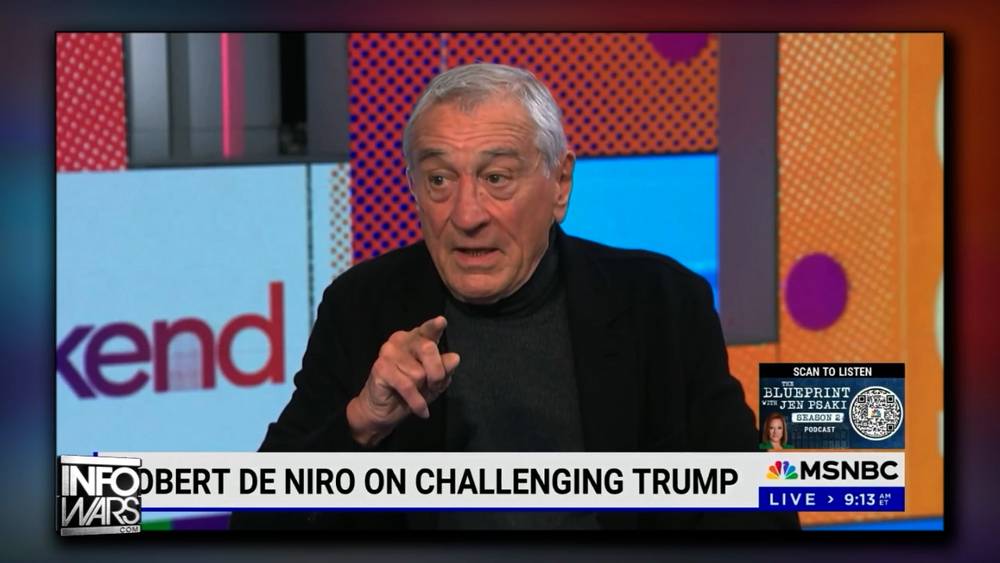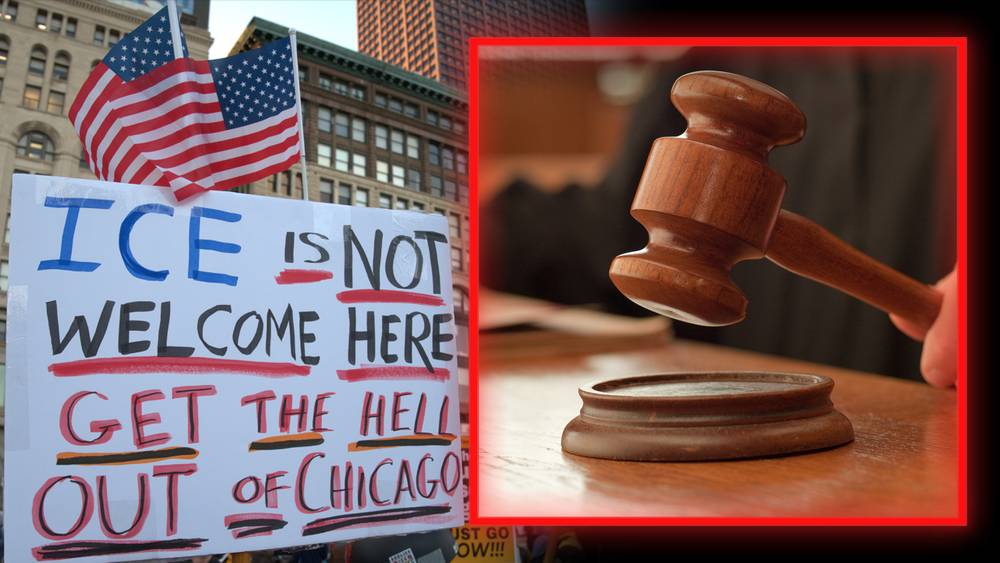
Believing it was the right thing to do, 23-year-old Trent Lieffring received two doses of the Pfizer-BioNTech COVID-19 vaccine in 2022. About eight to nine months later, Trent experienced cardiac arrest and subsequent brain damage, apparently due to blood clots. He died on Aug. 24, 2023.
In 2022, 23-year-old Trent Lieffring was working toward a promising future. He was attending college in Nashville, he was in a happy relationship and, according to his parents, was “a pure, sweet, kind soul” and “extremely healthy and in great athletic shape.”
Believing it was the right thing to do, Trent received two doses of the Pfizer-BioNTech COVID-19 vaccine in 2022, two-and-a-half months apart. Initially, all seemed well — but approximately eight to nine months later, Trent experienced cardiac arrest and subsequent brain damage, apparently due to blood clots.
Trent spent the rest of his life in a vegetative state until he died on Aug. 24, 2023. His death certificate acknowledged “reaction to COVID-19 vaccination” as one of the causes of his death.
Trent’s parents, Andy Lieffring and Kimberly Aveyah, joined CHD.TV’s “The People’s Study” today to share Trent’s story.
‘There was no sign of this coming’
Kimberly told CHD.TV that Trent’s biology professor “had kind of given a speech to his class on taking the shot for the good of others.”
Although “Trent didn’t need it … he took that speech to heart and went and got the vaccine,” Kimberly said.
Trent was vaccinated despite the misgivings of his parents. Kimberly said he had asked her if he should get vaccinated.
“As a family, we suggested that he didn’t, no one else in the family took it,” she said. “We were not on board with it. We thought it was rolled out way too fast. We had our suspicions right from the beginning.”
Initially, all appeared well with Trent, with his girlfriend reporting that he had only a headache after getting his second dose.
“So far as we knew, everything was OK with him,” Andy said. “Trent was a very healthy individual.”
But “eight to nine months later,” Trent began experiencing adverse reactions.
Trent got home about 11 o’clock one night, after working as a valet in downtown Nashville, and “just didn’t feel good and was very feverish throughout the night,” according to his girlfriend, Andy recalled. “Very restless.”
He got up several times to go to the bathroom, “which was very unusual for him, and he seemed very agitated, he didn’t feel good at all,” Andy said. When he didn’t feel any better in the morning, Trent’s girlfriend decided to get him a COVID-19 test.
“She went into the bathroom … and she started getting ready and she heard him say something to her and turned around and he had passed out,” Andy said. “He had gone into cardiac arrest.”
According to Andy, it took paramedics “a very long time to revive our son.” They “actually revived him once, lost him, and then revived him again.” By the time they got him breathing, he had sustained significant brain damage because of how long his brain had been deprived of oxygen.
His parents were out of state when Trent collapsed. When they returned to Nashville late that evening, they found Trent in the hospital on a ventilator, with “tubes everywhere” and “his head wrapped up,” Kimberly recalled.
“We were just trying to understand what happened because he was completely healthy,” Kimberly said. “There was no sign of this coming.”
Doctors ‘just kind of shut up’
Trent’s doctors “had no clue” what was wrong, Andy said.
“We did end up running extensive tests and nothing was conclusive. Various different things like something called Factor V Leiden, which is a high blood clotting factor in the blood, which does run in my family, but it came back negative. It was all speculation, but nobody had any answers,” Andy said.
Ultrasound examinations, however, did find some blood clots in one of his legs, Andy said. This led to a provisional determination that Trent’s condition “could have had something to do with blood clots,” after doctors had ruled out a stroke.
“One ICU [intensive care unit] nurse had said, ‘I just don’t see how this could have shut down his heart unless there was a blood clot that first shut down his lungs, and [then] the cardiac arrest.’ That was her best guess,” Andy recalled.
But while some nurses viewed Trent’s condition with suspicion, doctors kept silent, Andy said. “No doctor ever gave us a diagnosis or an opinion or anything. Any time we brought up vaccination, COVID … everybody just kind of shut up.”
Doctors began to focus on treating Trent’s emerging symptoms.
“He’s biting his lips so hard, he’s becoming rigid and having these spasms, there’s a lot of things that happen when you have a severe anoxic brain injury. And so, that became the focus. We were told that it was extensive brain damage, but that sometimes, given time, some people come out of what they were saying was a vegetative state,” Kimberly recalled.
Initially, Trent responded to some stimuli in his environment.
“He could respond to pain and sounds and things like that that are coming from your brainstem, those basic functions,” Kimberly said. “But it’s hard to say if someone in the vegetative state is aware of you or not. Sometimes we thought he was. And then as things progressed … I didn’t feel like he knew we were there.”
Andy noted that Trent was also “heavily medicated” during this period, “because his spasticity got so bad.” It was difficult to ascertain whether Trent would have had more situational awareness had he not been on such medications.
“It was a double-edged sword. The medication also kept him from suffering,” Andy said. “He suffered greatly.”
Trent spent nearly a month in the hospital, but as he was uninsured, his family had to transfer him to a state-run nursing home, despite their reluctance.
“Pretty poor conditions. I remember when they took him there that night,” Andy recalled. “I freaked out … and I said, my son’s not staying here.” However, after a nurse’s reassurance, Trent was admitted, and Andy stayed with him for the night.
Trent spent three months in the facility, with his parents spending “10, 11 hours a day” with him. But when he became sick and had to be transferred to the emergency room, his family learned that he was approved for Medicaid, enabling him to be readmitted to the hospital, and subsequently to return home.
“The fight from there was, ‘Get me a doctor so that I can take my boy home.’ And we were able to, after probably about a two-week stay, we were able to be discharged to home. Never went back to the nursing home,” Andy said.
Trent spent the last four months of his life at home, during which he did some physical and speech therapy at a local rehab facility. At times, he seemed to be improving.
“There were things that were, maybe, signs,” Andy said. “Every once in a while, you’d feel like he was watching you … you felt like his eyes were following you or there was maybe a small response,” despite being on strong doses of Valium and other medications.
Without the medication, Andy said Trent would visibly struggle.
“His hands and wrists would curl over, and his legs would turn in, his ankles would turn in, almost like his foot looked like a hockey stick … And there were times where it was when they tried to take him off the Valium and they tried it too quickly and he was almost convulsing,” Andy said.
But even with medication, Trent’s condition gradually worsened. “In the months after that, he started to shut down a little bit more. He had gallbladder issues. About a month before his passing, we had a drain installed on his gallbladder,” Andy recalled.
A difficult decision to place Trent under hospice care
Trent’s gallbladder issues served as a crossroads for his family, leading to the difficult decision to place him in hospice care.
“There was a choice to … install a drain or to have his gallbladder removed, which would have been another painful surgery that he would’ve had to recover from,” Andy said. “And we had decided at that point that once he gets to the one-year mark, we should probably just go the hospice route. And so knew that we knew it was coming.”
Kimberly said:
“When we made the decision that we didn’t think he was going to make any more progress or come out of this vegetative state and that he was suffering so much, so many more problems were starting to happen. We talked to the hospice nurses about, ‘OK, how do we handle this?’”
This process, Kimberly recalled, initially involved withdrawing food and water.
“At first, that just sounded horrifying to us. Turns out that actually … his last nine days, as we were removing the food and water and walking him through this process, were the most comfortable and peaceful that we saw him,” she said.
During Trent’s final days of life, family members were by his side, Kimberly said:
“We wanted to have it at home, with family surrounding him. And so, we used the days to sing with him, to laugh with him, tell him stories about himself and things we did as a family prayed, some extended family came in to visit here and there.
“When Trent passed away, it probably was one of the most beautiful experiences of just releasing his body and the suffering attached to it, completely surrounded by those that loved him. So, it was actually the most peaceful and serene time since the accident started.”
COVID vaccine listed as one of the causes of Trent’s death
To the surprise of Trent’s parents, his death certificate included the COVID-19 vaccine as one of the causes of his death.
“What they wrote on the death certificate was an anoxic brain injury due to cardiopulmonary arrest with resuscitation due to COVID vaccination reaction,” Kimberly said.
According to Andy, it was the hospice nurses who decided to include the COVID-19 vaccine on Trent’s death certificate as one of the causes of his death.
“I never requested that [but] our son was not the first strange case that they had seen, and none of them even had any pushback on any of our thoughts about that,” Andy said. “I believe those nurses saw the same thing we did. I believe that that was their belief as well. Otherwise, they wouldn’t have put that on his death certificate.”
“Especially when you’re in the hospital, nobody wants to talk to you about the COVID vaccine being the issue at all,” Kimberly said. “As we got a little bit further away … there were more and more doctors that would say that, yes, they thought it was from the COVID vaccination.”
Even 11 months after Trent’s passing, Andy said, “There’s not a single day … where it doesn’t hit you like a ton of bricks. “Sometimes, you feel like your heart’s going to explode. He would have been a fantastic father.”
Trent’s parents also had a message for Pfizer, Andy said:
“Pfizer, whoever is in charge, and it’s not just a greed thing, it’s a political thing. It’s been weaponized, they will all have to answer to a holy God. And that, to me, is the ultimate justice.”




